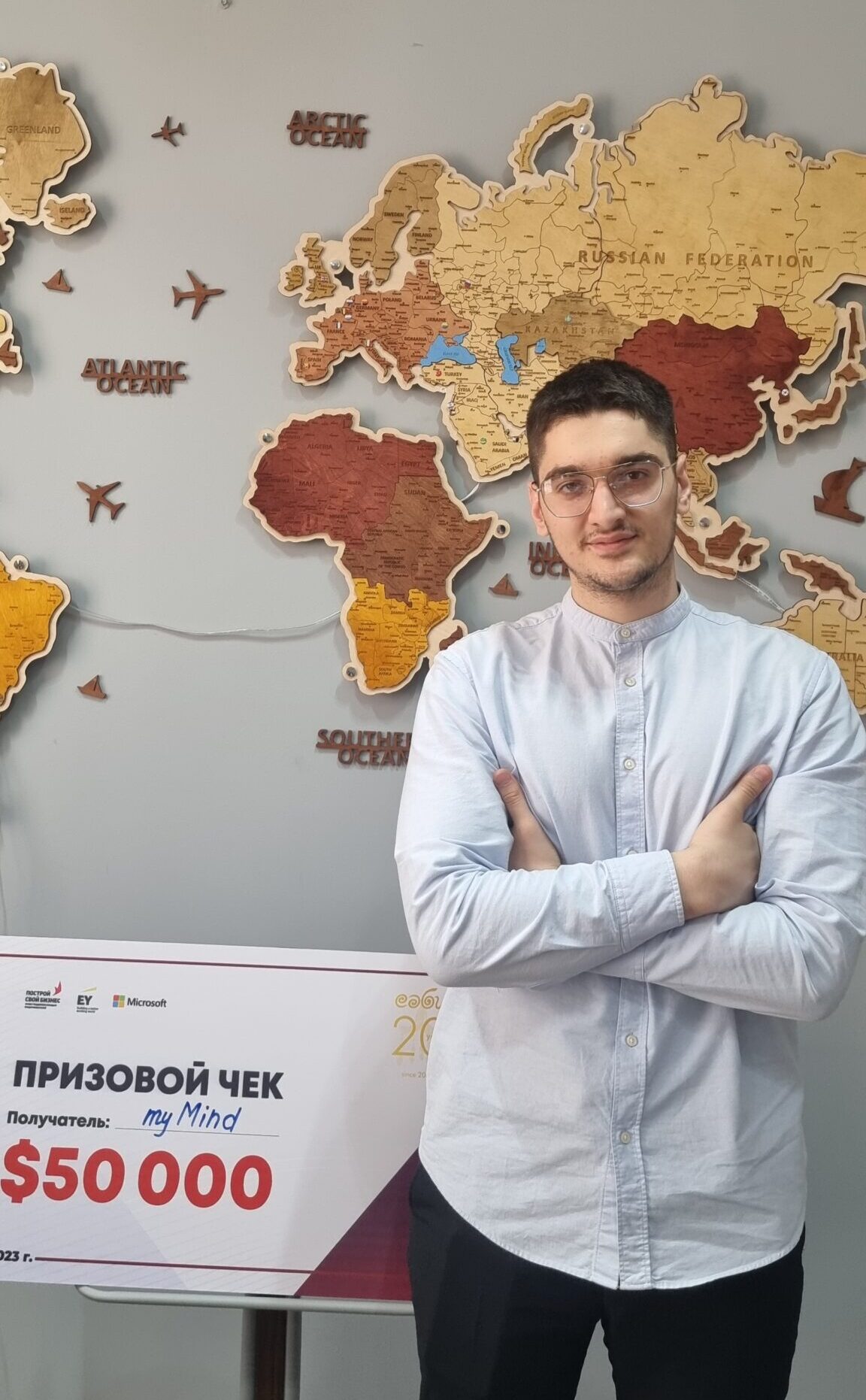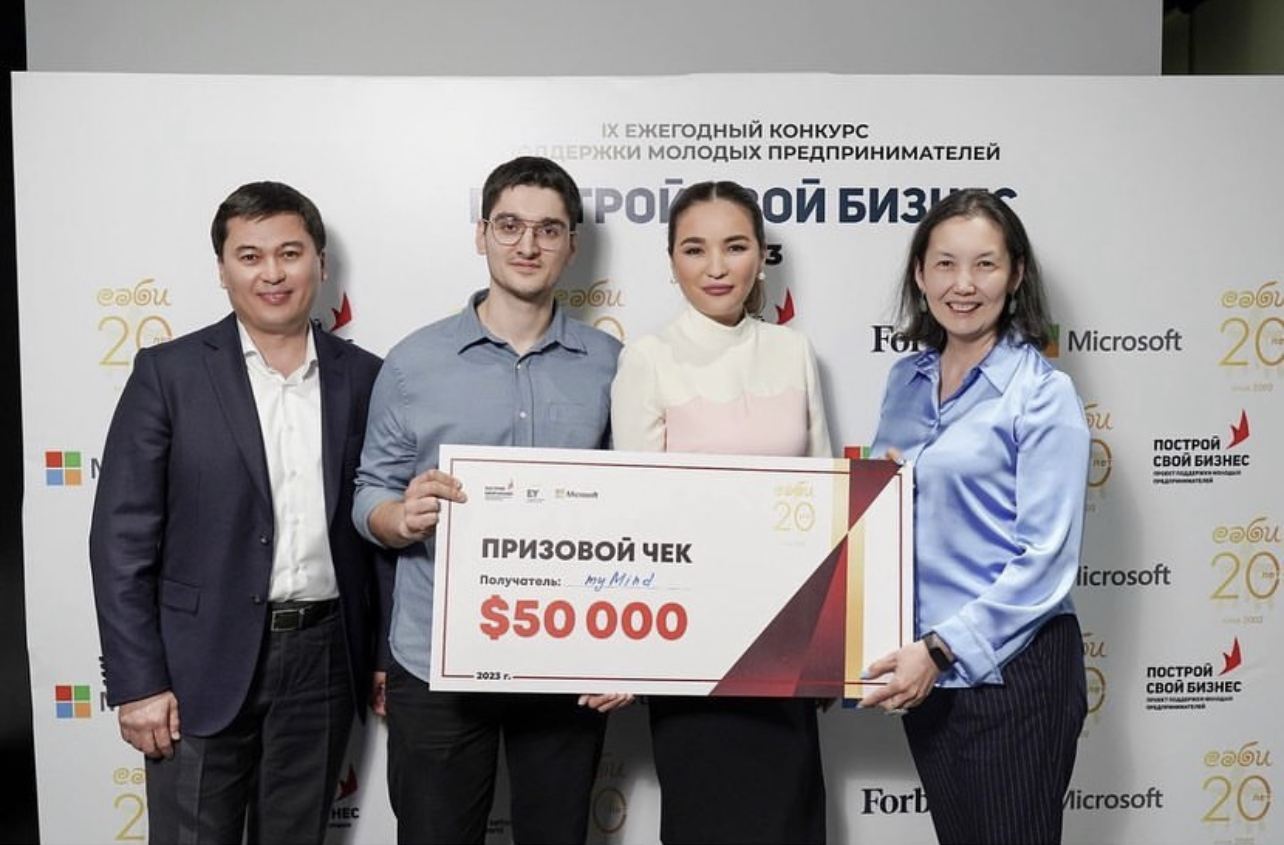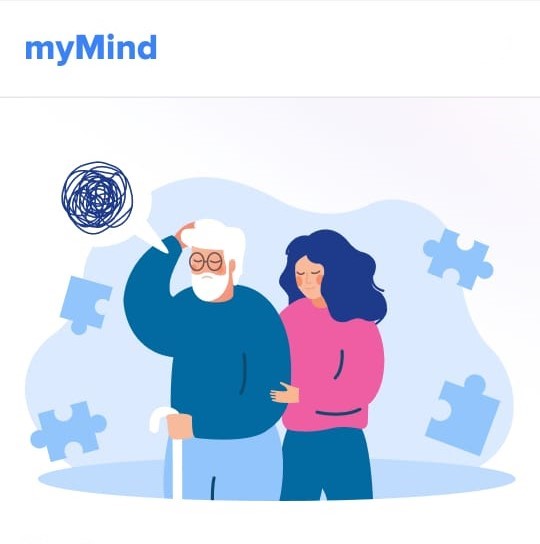ASTANA — MyMind, a Kazakh startup, seeks to assist in detecting early signs of dementia (Alzheimer’s disease), a syndrome that interferes with a person’s everyday life and activities due to a loss of cognitive function.

Yusup Tumgoev. Photo. credit: The Astana Times.
The startup addresses poor early detection, the most prevalent problem in tackling the disease.
The MyMind test includes Alzheimer’s disease precursors, symptoms, and risk factors. Patients can track the dynamics of the disease’s progression and review and compare previous test results on their personal accounts.
Yusup Tumgoev, one of the project’s leaders and developers, spoke to The Astana Times about the creation of the myMind test, the work process, and plans for the future.
Tumgoev, a Nazarbayev University graduate with a degree in computer science and a master’s in data science, had experience in launching several startups.
“One of the successful projects was a food tech startup. I was looking for investment, and this is how I met my mentor Seitzhan Sypabekov, who proposed to me the myMind idea,” he said.
The idea turned into an independent neurocognitive exam that was co-founded by Seitzhan Sypabekov, head of the Galamat Group medical holding, and Zhibek Zholdasova, Ph.D., psychotherapist, head of the Universal Brain Center, the first private psychotherapeutic center for neurosis and Alzheimer’s disease in Kazakhstan.
“They reached out to me because of my strong communication and management skills. They knew that I could create a successful team. I invited my friend Nikita Novozhilov, who wrote 90 percent of the code for this project,” Tumgoev said.
The ultimate challenge was integrating the project’s medical and IT components, collecting all the data, and making medical information understandable to users. According to Tumgoev, the primary goal of medical startups is to benefit people before becoming profitable.
“We were working for two years, producing new features that we kept testing but without any significant results. At one point, we were working non-stop to provide high test accuracy. My family and friends even tried to persuade me to give up this project because I was not profiting from it. But I still had a strong belief that pushed me to keep working on this project,” said Tumgoev.

Photo credit: Yusup’s personal archive.
According to Tumgoev, one of the biggest achievements of the past three years was winning a $50,000 prize at the Build Your Own Business project organized by Sabi (Infant) private charitable foundation. For the myMind developers, this was a sign of recognition of their work.

Photo credit: mymind-test.com.
There are several cognitive tests to identify dementia. However, most of them are paper tests that require time, the physical presence of the doctor and the patient, and additional health worker qualifications. The MyMind test is unique as it is digital and can be conducted without the assistance of medical staff.
“Our objective was to create something that would not require much time for doctors. This does not mean that we want to replace doctors. We wanted to help them delegate initial patient interviews and all medical documentation preparation to the program. Now, doctors can just send a link or open the application for this test, and usually, it takes approximately seven to 20 minutes,” noted Tumgoev.
The MyMind application is unparalleled in the Commonwealth of Independent States. Price competitiveness is its crucial advantage because research to verify new technologies is cheaper and faster in comparison to the United States and the European Union, which is a critical factor for a medical startup’s long-term success.
Tumgoev said the test will evolve into Artificial Intelligence (AI), facilitating doctors’ work. The team is in the final stage of developing software that will be incorporated into the project soon.
“It is based on the patient’s gesture recognition, which helps to detect if the person has dementia. We also have huge data that includes patients’ responses and doctors’ labels that allow us to provide self-learning tests that give high-accuracy results. The next step is to develop and add software that can read MRI,” said Tumgoev.
Development of the myMind test is an important step forward, as medications and new treatment methods that can help slow the progression of dementia are emerging. But they are most effective in the early stages of the syndrome. Early detection can therefore reduce symptoms through treatment and slow down the progression toward more severe stages of the disease.
